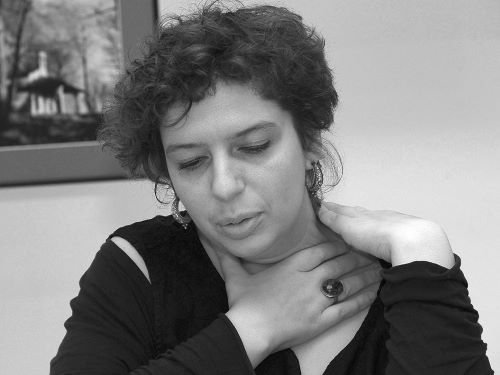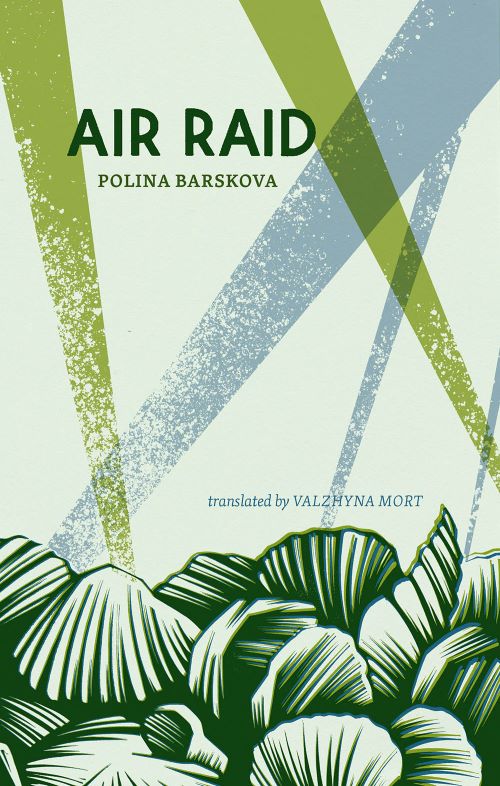In this story I moonlight as a bitter-eyedScheherazade, a dark-tongued, grumpy-bootied Scheherazade, full of sandand ash-sand and ash,as the story spins, my body grows harshhard body roams grows presentable sourmilk of speechferments into quasi senses.Shahriar, sentence me to mercy.Not because like the rest of themsearching for you between sheets and pillowsI wrestled my night fears inside the cuddle of wills.Not because I’m averse to climbing a scaffold,to the stink of a blade, the affections of the last goodbyes.Sentence me to mercy because across the snows(flaccidly he asks, What is this “snow”?)I would lead you away from here;like a worn blanket,snow in my empire is yellowed, gray, markedwith mysterious tracks.Like, in the smoke, after a house fire,dead shadows are still trying to reach for safety,snow in my empire framesthe end of desire:Mercy, Shahryar.As I speakof a fish that erupts like a volcano,of an underground vagina that leads straight to Maghreb, into a tomb of demons,of a feline tsarina of poison,You sit in the way of sorrow, grief, pleasure,solaceyou are a word you are a whitedozing newborn,a backbone of a warm house, its breathing.A dog snores, swaddle blankets embroidered,Grandmother, wise and living, touches your face,howling out of unbearable tenderness.I repeat once moreHave mercyA ruby flaresA word, unsaid, flaresunder your cheek, I tuck— as if putting my body into your fireto keep it going —a paper chip (a pearl) a wood chip.
Mercy
Feature Date
- March 16, 2022
Series
- Translation
Selected By
Share This Poem
Print This Poem
Copyright © Polina Barskova
Translation © Valzhyna Mort
From Air Raid (Ugly Duckling Presse, 2021).
All rights reserved.
Reproduced by Poetry Daily with permission.

Polina Barskova is a poet and a scholar, author of twelve collections of poems and two books of prose in Russian. Her collection of creative nonfiction, “Living Pictures,” received the Andrey Bely Prize in 2015 and is forthcoming in German with Suhrkamp Verlag and in English with NYRB. She edited the Leningrad Siege poetry anthology Written in the Dark (UDP) and has three collections of poetry published in English translation: This Lamentable City (Tupelo Press), The Zoo in Winter (Melville House) and Relocations (Zephyr Press). She has taught at Hampshire College, Amherst College, and Smith College.

Kapitonova
Valzhyna Mort was born in Minsk, Belarus. She is the author of Factory of Tears, Collected Body (both from Copper Canyon Press), and Music for the Dead and Resurrected (FSG). She is the recipient of an NEA translation grant, fellowships from the Lannan Foundation and the Amy Clampitt Fund from the Berkshire Taconic Community Foundation, the 2010 Bess Hokin Prize from the Poetry Foundation, and the 2018 Gulf Coast Prize in Translation. She is the translator of Air Raid by Polina Barskova (UDP). She teaches at Cornell University and writes in English and Belarusian.
"Through a dazzling variety of poetic forms and with genuine poetic courage, Polina Barskova—one of the best poets writing in Russian today—reenacts the Siege of Leningrad, tragic pages of Russian history, and the lives of her favorite poets, as well as her own life with its joys, pains, and dramas. Translated into English by Valzhyna Mort, a superb poet herself, Air Raid reaffirms the significance of poetry as the historical medium uniquely equipped to articulate painful historical experiences and intimately connect them with today's sensibilities."
— Mark Lipovetsky, Columbia University
"Is this a poetics of history or memory or of the inability of our notions of history and memory to make any sense of the horror our species has created? Is this a poetics of scream or whisper, or a scream in whisper? Is it a poetics whose music is crisis or one that takes a crisis as its muse? All of this, I think. And much more. 'This pebble here is a monument to someone,' Barskova writes. Her poetics is multi-vocal, yes, she echoes the voices of victims, yes, she makes sure many other poets' lines resonate as her own pages turn, yes—and yet it is silence, at the core of her metaphysics, that moves me the most. It is her silence that knows the limits of any human response to horror, it is her silence that orchestrates melodies unheard. Not an easy thing to create, this silence. And Valzhyna Mort does that hardest of things—she translates it into American-English, thereby challenging our own American-English assumptions of what poetry is. This elegiac and terrifying book, so filled with voices' various rhythms, will stay in my memory as a moment of stillness, as when one comes from the crowded funeral and closes the door to sit alone in the room. This book casts a spell; it leaves me with an ornament of silences that emote—for, as Dickinson told us: after great pain, a formal feeling comes."
— Ilya Kaminsky, author of Deaf Republic
Poetry Daily Depends on You
With your support, we make reading the best contemporary poetry a treasured daily experience. Consider a contribution today.




